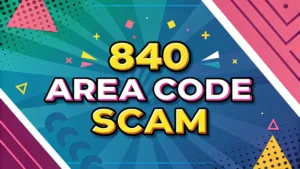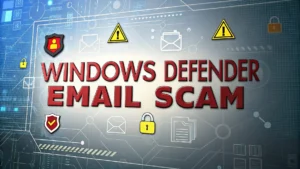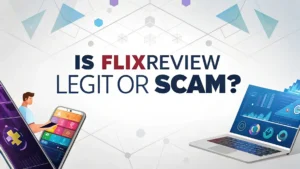The world of online shopping presents countless opportunities to find great deals and unique products.
Eclipzor.com represents one of these deceptive operations – a scam store carefully crafted to appear legitimate while operating with malicious intent.
In this comprehensive guide, we will expose the truth about Eclipzor.com, examine how this scam operation works, identify the warning signs, and provide you with practical strategies to protect yourself from this and similar online shopping scams.
Key Takeaways
Before diving deeper into this deceptive operation, here are the critical facts you need to know about Eclipzor.com:
- Eclipzor.com is a confirmed fraudulent website designed to steal money and personal information from unsuspecting shoppers
- The site uses extremely low prices (often 70-90% below market value) as bait to lure victims into making purchases
- Most customers report receiving absolutely nothing after payment, while some receive cheap, counterfeit items or completely wrong products
- The website has no legitimate contact information – no physical address, working phone number, or responsive customer service channels
- All product images and descriptions are stolen from legitimate retailers without permission
- The site is likely part of a larger scam network based in China that operates multiple fake online stores
- The website has no social media presence or verified customer reviews on independent platforms
- The store uses deceptive sales tactics like fake countdown timers and limited stock warnings to pressure quick purchases
- Customer payment information is likely collected for identity theft and credit card fraud beyond the initial purchase
- The company behind the website remains deliberately anonymous with no transparency about ownership
- All legal pages are copied from other websites and provide no actual consumer protection
- If you have already made a purchase, you should immediately contact your bank to dispute the charge and protect your accounts
The Eclipzor.com Facade: Understanding the Deceptive Storefront
When you first visit Eclipzor.com, nothing immediately screams “scam” to the untrained eye. The site presents a professional appearance with polished product images, organized categories, and familiar e-commerce features.
This deliberate design strategy aims to create a false sense of legitimacy and security. The website features a clean, modern layout similar to those used by genuine online retailers.
Product displays show appealing images of items at prices that seem like incredible bargains. This calculated facade serves as the first step in their deceptive operation.
Behind this polished veneer lies a completely fabricated operation with no actual inventory, warehouse, or legitimate business structure. The scammers have invested just enough in website development to create a convincing storefront while maximizing their profit potential. They understand that most consumers make quick judgments about website legitimacy based on appearance alone.
The site strategically displays fake trust badges claiming secure shopping and satisfaction guarantees without actually providing these protections. Some visitors might notice suspicious elements like poor grammar in product descriptions or oddly worded policies, but these are easily overlooked when shoppers focus on the appealing prices.
What makes Eclipzor.com particularly dangerous is its temporary nature. The site likely operates for just a few weeks or months before accumulating too many complaints, at which point the operators simply shut it down and launch a new scam store under a different domain name. This hit-and-run approach allows the scammers to stay ahead of consumer warnings and enforcement actions.
The fake storefront serves as the critical first step in their scam operation – creating just enough legitimacy to convince shoppers to enter payment information. Once that happens, the real damage begins.
How the Eclipzor.com Scam Actually Works
Understanding how the Eclipzor.com scam operates reveals a calculated multi-step process designed to maximize victim count while minimizing detection. The scam follows a predictable pattern that has proven successful for countless similar operations.
The scam begins with aggressive advertising campaigns on social media platforms including Facebook, Instagram, and TikTok. These ads feature stunning product images with claims of “Warehouse Clearance” or “Going Out of Business” sales to explain the dramatically low prices. The advertisements are professionally designed to catch attention and appear legitimate to casual browsers.
When potential victims click through to the website, they find a seemingly professional online store with a wide variety of products. The site employs psychological pressure tactics such as countdown timers showing “limited time offers” and indicators showing “only 3 left in stock” to create urgency. These elements push visitors toward making quick purchasing decisions without proper research.
The checkout process involves collecting extensive personal information beyond what legitimate stores require. Beyond standard shipping details, the site may request date of birth, multiple contact methods, and even secondary identification in some cases. This data collection serves a dual purpose – executing the current scam and gathering information for future fraud attempts.
After purchase, customers initially receive a legitimate-looking order confirmation email that mimics professional retail communications. This creates a false sense of security and prevents immediate suspicion. The email may provide a fake tracking number that shows the package “processing” for several days.
The most common outcome is that no product ever arrives. In some cases, victims receive an empty package, counterfeit items that barely resemble the product images, or completely random items of minimal value. When customers attempt to contact customer service, they encounter non-responsive email addresses or automated replies that never lead to resolution.
The final stage involves evading accountability through various tactics. The website’s refund policy contains impossible conditions, communication channels become unresponsive, and the operators may simply shut down the site entirely when complaint volume rises. Meanwhile, the same operation likely launches new scam sites under different domain names to continue the cycle.
This entire operation maximizes profit by eliminating all actual business expenses – no inventory, no shipping costs, no customer service, and no returns. Every dollar paid by victims goes directly into the scammers’ pockets, making this an extremely lucrative criminal enterprise.
Red Flags That Expose Eclipzor.com as Fraudulent
Identifying scam websites becomes easier when you know the specific warning signs to look for. Eclipzor.com displays numerous red flags that clearly mark it as a fraudulent operation rather than a legitimate business. Learning to recognize these indicators will help protect you from similar scams in the future.
The first major red flag appears in the domain registration details. Eclipzor.com was registered very recently, often a sign of a temporary scam operation.
The domain registration uses privacy protection services to hide the owner’s identity, preventing accountability. Legitimate businesses typically operate transparent websites with clear ownership information.
The website displays unrealistic discounts that defy business logic. Products listed at 70-90% below regular retail prices should immediately trigger skepticism. No legitimate business can sustain such extreme discounts across their entire inventory. These impossibly low prices serve as the primary bait to lure unsuspecting shoppers.
A careful examination reveals copied product descriptions and images stolen directly from legitimate retailers without permission. This content theft indicates the site has no actual connection to the products they claim to sell. In some cases, product descriptions contain inconsistencies or references to features not shown in the accompanying images.
The site completely lacks contact information beyond a generic email address. No physical address, phone number, or live chat support exists. Legitimate businesses provide multiple contact channels and clear information about their location and operations. The absence of this basic information signals a company with no intention of providing actual customer service.
All legal pages contain generic, copied text from other websites rather than specific policies for Eclipzor.com. The privacy policy, terms of service, and return policy all use template language with no customization. Some sections may even reference different company names if the scammers failed to edit the templates properly.
The website has no social media presence or verified customer reviews on independent platforms like Trustpilot or the Better Business Bureau. Legitimate online retailers maintain active social media accounts and accumulate genuine customer feedback over time. The complete absence of external validation indicates a fraudulent operation.
The checkout process reveals additional red flags through unusual payment restrictions. The site may push customers toward payment methods with limited consumer protections, such as direct bank transfers, cryptocurrency, or gift cards. When credit cards are accepted, the payment processing may occur through suspicious third-party services rather than mainstream processors.
These red flags collectively paint a clear picture of a fraudulent operation designed to deceive consumers. Recognizing these warning signs can help you avoid not only Eclipzor.com but countless similar scam stores operating with the same deceptive tactics.
The Psychology Behind Shopping Scams: Why People Fall Victim
Understanding why intelligent, cautious people fall for online shopping scams provides valuable insight into how these operations succeed. Eclipzor.com and similar scam stores exploit fundamental aspects of human psychology to overcome natural skepticism and secure victims.
The most powerful tool in the scammer’s arsenal is the appeal of exceptional deals. The human brain is naturally drawn to opportunities for significant savings, creating an emotional response that can override logical thinking. When shoppers see products at 80% below normal prices, the excitement of getting a “steal” activates reward centers in the brain, making critical thinking more difficult.
Scammers exploit the fear of missing out (FOMO) through artificial scarcity tactics. Eclipzor.com uses countdown timers, limited stock warnings, and “exclusive” sale messaging to create a sense of urgency. This psychological pressure pushes potential victims to make quick decisions before the “opportunity” disappears, reducing the time available for proper research or reflection.
The site leverages social proof through fake reviews and testimonials. Humans naturally look to the actions and opinions of others when making decisions. By displaying fabricated positive reviews, the scammers create an illusion that many satisfied customers have already safely purchased from the site, lowering the visitor’s guard.
Many victims fall prey due to confirmation bias – the tendency to favor information that confirms existing desires. When someone wants a product at a low price, they become more likely to accept flimsy explanations for the discount (“warehouse clearance” or “direct from manufacturer”) while ignoring suspicious elements that contradict their desire for the deal to be legitimate.
The scammers also exploit authority bias by mimicking established retail conventions and displaying fake trust badges or security certifications. By copying the familiar elements of legitimate e-commerce sites, they trigger automatic trust responses in visitors who associate these features with safe shopping experiences.
Even skeptical consumers can become victims through consistency and commitment principles. After taking initial steps in the purchasing process, people feel psychologically compelled to continue rather than abandon their investment of time and attention. This makes it harder to back out even when warning signs appear during checkout.
Understanding these psychological mechanisms helps explain why even careful shoppers can fall victim to scams like Eclipzor.com. By recognizing how these emotional and cognitive factors influence decision-making, consumers can develop stronger defenses against manipulative tactics and approach online deals with appropriate caution.
The Digital Breadcrumbs: Tracing Eclipzor.com’s Connections
Digging deeper into Eclipzor.com reveals connections to a larger network of scam operations, suggesting an organized fraud enterprise rather than an isolated fake store. This network analysis provides valuable context about the scope and sophistication of the threat.
Technical investigation shows that Eclipzor.com shares server infrastructure with dozens of other known scam websites. These sites use identical templates with only superficial changes to branding and product focus. The shared technical footprint indicates they operate from the same organization despite presenting different storefronts.
The payment processing systems used by Eclipzor.com connect to merchant accounts associated with previous scam operations. These accounts frequently change as payment processors shut them down following fraud complaints, but they maintain consistent patterns in how transactions are routed and processed. This payment infrastructure represents a critical vulnerability in their operation.
Analysis of the website code reveals identical programming patterns, including specific JavaScript functions used to create fake countdown timers and inventory warnings. These technical signatures link Eclipzor.com to a broader ecosystem of fraudulent sites targeting different consumer segments but operating with the same underlying methods.
The marketing patterns show coordinated advertising campaigns across multiple scam domains. The operators strategically rotate their active storefronts, with new domains appearing as others accumulate negative reviews or face shutdown. This rotation creates a whack-a-mole problem for authorities and consumer protection organizations trying to combat these operations.
Customer complaints across multiple platforms reveal identical scam patterns in how orders are handled (or not handled) after payment. The consistent approach to misleading customers, ignoring communication attempts, and refusing refunds points to standardized operating procedures within the criminal organization.
Most evidence suggests the operation originates from international locations with limited consumer protection enforcement, making legal action difficult. The organization likely employs layers of shell companies and identity concealment to shield the actual operators from consequences.
This broader context demonstrates that Eclipzor.com represents just one node in a sophisticated criminal network designed to systematically defraud consumers. Understanding these connections helps consumers recognize that seemingly “new” online stores may actually be rebranded versions of previously exposed scam operations.
Real Victim Stories: The Human Cost of Eclipzor.com Scams
Beyond the technical analysis and warning signs, the real impact of Eclipzor.com becomes clear through the experiences of actual victims who have lost money and faced additional consequences after interacting with this fraudulent website.
Sarah from Oregon shares her experience: “I found Eclipzor through a Facebook ad showing designer furniture at amazing prices. I ordered a $1,200 sectional sofa for only $249, thinking I’d found an incredible deal. After payment, I received a confirmation email with a tracking number, but the tracking never updated beyond ‘label created.’ Weeks passed with no delivery and no response to my emails. When I tried to dispute the charge with my bank, they initially hesitated because I had a confirmation email. I never received the furniture or any refund, and later discovered the same credit card had mysterious charges from overseas vendors.”
Michael, a teacher from Florida, reports: “I ordered three electronic tablets from Eclipzor.com as gifts for my children, attracted by prices that were 75% below what I saw on Amazon. After waiting four weeks, I received a small package containing three cheap plastic toys that looked nothing like the tablets I ordered.
The package had Chinese shipping labels and no return address. Customer service emails bounced back as undeliverable, and the website had completely changed its product lineup when I returned to complain. I lost $347 and had nothing to give my kids for their birthdays.”
Jennifer, a healthcare worker from Michigan, experienced more serious consequences: “Beyond losing $189 on products that never arrived, I began receiving phishing emails specifically targeting information I had entered on Eclipzor.com.
Three weeks after my purchase, someone attempted to open credit accounts in my name using my address and phone number. I had to freeze my credit and spend hours dealing with identity theft issues. The financial loss from the scam purchase was just the beginning of my problems.”
Robert from Texas shares: “I thought I was smart by using a credit card with good fraud protection, but I still lost time and peace of mind. After ordering a discounted power tool set that never arrived, I successfully disputed the charge.
However, I started receiving constant spam calls and text messages to the phone number I provided during checkout. Even worse, the shipping address I provided became the target of a mail theft attempt where someone tried intercepting packages. The scam extended beyond just taking my initial payment.”
These real experiences highlight the multifaceted harm caused by Eclipzor.com and similar scam operations. Victims face not only the immediate financial loss from unfulfilled orders but also potential identity theft, credit card fraud, and privacy compromises that create lasting problems. These stories emphasize why avoiding scam websites in the first place remains the best protection strategy.
How to Verify Legitimate Online Stores Before Shopping
Protecting yourself from scams like Eclipzor.com requires developing habits for verifying online stores before making purchases. These practical verification steps can help you distinguish legitimate retailers from fraudulent operations.
Start by researching the store’s online reputation through independent sources. Search for the website name plus terms like “review,” “scam,” or “legitimate” to find customer experiences. Check trusted review platforms like Trustpilot, SiteJabber, or the Better Business Bureau.
Legitimate businesses typically have a mix of positive and negative reviews accumulated over time, while scam sites either have no reviews or suspicious patterns of identical positive feedback.
Verify the store’s physical presence and contact information. Legitimate businesses provide complete contact details including a physical address, phone number, and business email (not just gmail or hotmail). Try calling the listed phone number to confirm it connects to an actual business. Use Google Maps to verify the physical address exists and matches what you would expect for that type of business.
Examine the website’s age and ownership transparency. Use WHOIS lookup tools to check when the domain was registered. New websites less than six months old deserve extra scrutiny, especially those selling high-demand products at extreme discounts. Legitimate companies typically operate for years and provide clear information about their ownership and business history.
Evaluate the website’s professionalism and content quality. Look for consistent branding, proper grammar, and original product descriptions. Be suspicious of sites with misspellings, awkward phrasing, or descriptions that seem copied from major retailers. Professional photos with consistent styling indicate a real inventory, while mixed image styles may indicate stolen content.
Check for secure payment processing indicated by HTTPS encryption (lock icon in the address bar) and mainstream payment options. Legitimate stores offer standard payment methods including major credit cards and established services like PayPal that provide buyer protection. Be extremely cautious of sites that only accept irreversible payment methods like wire transfers, cryptocurrency, or gift cards.
Look for clear, specific policies regarding shipping, returns, and privacy. Read these policies carefully to ensure they provide actual consumer protections rather than vague promises. Legitimate businesses have detailed processes for returns and refunds with reasonable timeframes and fair conditions.
Verify the store’s social media presence by visiting their profiles on platforms like Facebook, Instagram, or Twitter. Real businesses maintain active accounts with regular posts, customer interactions, and an established following. Check when the accounts were created and whether they show evidence of genuine customer engagement over time.
These verification steps take only a few minutes but can save you from significant financial loss and stress. Making these checks a standard part of your online shopping routine provides effective protection against scam operations like Eclipzor.com while still allowing you to enjoy the legitimate benefits of e-commerce.
Social Media Red Flags: Spotting Scam Advertisements
Social media platforms have become the primary hunting grounds for scam operations like Eclipzor.com. Learning to identify suspicious advertisements can prevent you from even visiting fraudulent websites in the first place.
Be immediately suspicious of ads featuring extreme discounts without logical explanation. Claims of “90% Off Everything” or “Liquidation Sale” rarely represent legitimate business practices, especially for desirable brand-name products that normally maintain stable pricing. These impossible discounts serve as the primary bait to attract potential victims.
Watch for urgency messaging designed to prevent rational consideration. Phrases like “Today Only,” “Last 3 Hours,” or “While Supplies Last” aim to create immediate action by triggering fear of missing out. These tactics pressure you to click through and purchase quickly before properly researching the seller.
Examine the advertiser’s page carefully before clicking any links. Legitimate brands maintain established social media presences with consistent posting histories and engaged followers. Check when the page was created – scam operations typically use brand-new accounts with minimal history. A page created last week suddenly advertising massive sales should trigger immediate skepticism.
Study the advertisement quality for subtle inconsistencies. While scammers create increasingly professional-looking ads, they often contain telltale flaws like mismatched fonts, awkward text positioning, or low-resolution logos. Brand-name products shown at steep discounts may display outdated packaging or discontinued models that legitimate retailers no longer carry.
Pay attention to comment sections on the advertisements. Scammers typically delete negative comments and block users who post warnings. An ad with only generic positive comments like “Great deal!” or “Just ordered!” without specific product mentions may indicate filtered feedback. Real customer comments typically include specific questions and varied responses.
Notice whether the advertisement directs to unfamiliar website domains. Legitimate retailers maintain consistent branding between their advertisements and websites. Be skeptical when an ad appearing to represent a known brand directs to an unusual domain like “brand-super-clearance.com” rather than the official company website.
Be wary of ads that target impulsively rather than informing. Legitimate retailers focus on product features, benefits, and value propositions even when advertising sales. Scam ads typically emphasize only the dramatic price reduction while providing minimal actual product information, relying instead on emotional triggers to generate clicks.
Understanding these social media red flags helps you filter out scam advertisements before they lead you to fraudulent websites like Eclipzor.com. This first line of defense prevents scammers from even getting the opportunity to present their deceptive storefronts and payment systems to potential victims.
What To Do If You’ve Already Purchased From Eclipzor.com
If you’ve already made a purchase from Eclipzor.com or a similar scam website, taking immediate action can help minimize financial losses and protect your personal information from further misuse.
First, contact your payment provider immediately to report the fraudulent transaction. If you used a credit card, call the number on the back of your card to initiate a dispute. Credit cards typically offer the strongest fraud protections, making it easier to recover your money. For debit cards, contact your bank to report the fraud and potentially freeze your account to prevent additional unauthorized transactions.
Document everything related to the transaction for your dispute case. Save screenshots of the website, order confirmations, product descriptions, prices, and any communication you received. This evidence supports your fraud claim and helps authorities identify the scam operation. Save copies of these records outside your email, as scammers sometimes gain access to the email accounts used during transactions.
Change your passwords for any accounts where you used the same or similar login credentials as you did on the scam website. Start with your email account, as it often serves as the recovery method for other services. Create strong, unique passwords for each account to prevent credential stuffing attacks if your information was compromised.
Monitor your financial accounts closely for signs of additional fraud. Check your credit card and bank statements daily for unfamiliar charges, as scammers often test stolen card information with small purchases before making larger ones. Consider setting up transaction alerts to receive notifications about any new activity on your accounts.
Check your credit reports from all three major bureaus (Equifax, Experian, and TransUnion) for any unauthorized accounts or inquiries. Consider placing a fraud alert or credit freeze on your reports to prevent scammers from opening new accounts in your name using the personal information you provided during the transaction.
Report the scam to relevant authorities who track and combat online fraud. File complaints with:
- The Federal Trade Commission (FTC) at reportfraud.ftc.gov
- The FBI’s Internet Crime Complaint Center (IC3) at ic3.gov
- Your state’s consumer protection office
- The Better Business Bureau’s Scam Tracker
Be alert for follow-up scams targeting victims of the original fraud. After falling victim to online shopping scams, some people receive calls or emails from individuals claiming to help recover their money – for a fee. These “recovery scams” target people already identified as vulnerable to fraud and should be ignored or reported.
Taking these steps promptly can help limit the damage from an Eclipzor.com purchase and protect you from additional fraud attempts. While recovery of funds isn’t guaranteed, acting quickly significantly improves your chances of resolving the situation with minimal financial impact.
The Technology Behind Shopping Scams: Understanding the Threat
Modern shopping scams like Eclipzor.com employ sophisticated technology and digital strategies to create convincing facades while remaining elusive to authorities. Understanding these technical aspects reveals how scammers operate in today’s digital landscape.
Scam websites typically utilize drop-shipping templates and e-commerce platforms that can be quickly deployed and customized. These ready-made solutions allow scammers to create professional-looking storefronts in hours rather than days, complete with product categories, checkout systems, and mobile responsiveness. This rapid deployment enables the hit-and-run approach that defines modern scam operations.
Behind the scenes, scammers employ proxy servers and VPNs to mask their actual locations and identities. These technologies make it difficult for authorities to trace the operations back to their source, especially when combined with international jurisdictional challenges. The technical infrastructure often spans multiple countries, further complicating enforcement efforts.
The operations leverage sophisticated advertising technology to target vulnerable demographics. Using data analytics and social media platforms’ targeting capabilities, they can precisely aim their deceptive advertisements at users most likely to respond to their particular type of scam. This targeted approach increases conversion rates and maximizes the return on their fraudulent advertising investment.
For payment processing, scammers increasingly use complex financial networks including shell companies, temporary merchant accounts, and sometimes cryptocurrency conversion services. These financial layers help obscure the money trail and delay detection long enough to extract funds before accounts are frozen or transactions reversed.
Many scam operations now employ real-time customer engagement bots that simulate human responses during the sales process. These automated systems can answer basic questions through live chat features, creating an illusion of legitimate customer service while collecting additional information from potential victims.
The most sophisticated operations utilize dynamic content delivery that shows different website versions based on visitor characteristics. For example, visitors from IP addresses associated with law enforcement or consumer protection organizations might see a legitimate-looking site with reasonable prices, while ordinary consumers see the actual scam version with impossible discounts.
Understanding these technical aspects helps explain why scam operations like Eclipzor.com continue to flourish despite increased awareness. The combination of rapid deployment, geographic obfuscation, targeted marketing, and layered financial transactions creates a technically challenging threat that requires equally sophisticated countermeasures from both consumers and authorities.
Building Your Digital Defense: Long-Term Protection Strategies
While understanding specific scams like Eclipzor.com is important, developing broader digital defense habits provides long-term protection against the constantly evolving landscape of online shopping fraud.
Establish a personal verification routine for unfamiliar online retailers. Before making first-time purchases, take five minutes to check the store’s legitimacy through independent reviews, domain age, contact information, and social media presence. This simple habit prevents most scam encounters without significantly disrupting your online shopping experience.
Create a secure payment strategy that minimizes exposure to potential fraud. Consider using virtual credit card numbers that generate unique, temporary card details for each transaction. Many major credit card providers offer this service, allowing you to shop online without exposing your actual account information. Alternatively, use payment services like PayPal that provide an additional layer between merchants and your financial accounts.
Develop healthy skepticism toward deals that trigger emotional responses. Train yourself to be particularly cautious when feeling excited about an unusually good offer. Make it a personal rule to add an extra verification step whenever you encounter prices significantly below market value, especially for popular or high-demand products.
Protect your digital identity by using unique information variations for different websites. Consider using specific email formats or slight variations in how you input your name for different merchants. These small differences serve as “canaries” that alert you to data breaches or information sharing if you start receiving communications using those specific variations.
Install browser security extensions that provide warnings about potentially fraudulent websites. Tools like Web of Trust, Norton Safe Web, or Malwarebytes Browser Guard check websites against databases of known scam operations and provide visual alerts before you enter personal information on suspicious sites.
Practice good digital hygiene by regularly checking your accounts, clearing saved payment methods from browsers, and updating passwords. Schedule monthly reviews of your credit card statements, saved website logins, and browser payment information to identify and remove unnecessary exposure points.
Participate in community protection by reporting scams and sharing experiences. When you encounter or nearly fall victim to scams like Eclipzor.com, take time to report them to relevant authorities and leave reviews warning others. This collective approach strengthens the information network that helps identify new scam operations quickly.
These long-term strategies build resilience against not just today’s known scams like Eclipzor.com but also tomorrow’s emerging fraud tactics. By incorporating these habits into your digital life, you create multiple layers of protection that work together to keep your personal and financial information secure.
The Future of Online Shopping Safety: Emerging Tools and Techniques
As shopping scams grow more sophisticated, new technologies and approaches are emerging to help consumers shop safely online. Understanding these developing solutions provides insight into how protection against scams like Eclipzor.com will evolve.
AI-powered fraud detection tools are becoming more accessible to everyday consumers. Browser extensions and banking apps increasingly use artificial intelligence to identify suspicious patterns in website behavior, pricing strategies, and checkout processes. These systems flag potential scam indicators that human users might miss, such as hidden redirects, unusual payment processing methods, or site characteristics shared with known fraud operations.
Blockchain-based verification systems are beginning to provide new ways to confirm merchant legitimacy. These decentralized technologies create tamper-proof records of business credentials, customer reviews, and transaction histories that scammers cannot easily fake. While still emerging, these systems promise more reliable ways to verify online sellers before making purchases.
Digital identity protection services now offer comprehensive monitoring beyond just credit reports. These services track when your personal information appears in new contexts online, alerting you to potential data breaches or unauthorized uses of your identity. Some services even monitor dark web marketplaces where stolen information is traded, providing early warning of compromised data.
Visual authentication technologies help verify product authenticity through smartphone cameras. Consumers can scan products upon delivery to confirm they match manufacturer specifications rather than counterfeits. This technology is particularly valuable for brand-name items frequently targeted by scam sites like Eclipzor.com.
Community-based verification networks enable shoppers to check website legitimacy through collective experiences. These platforms aggregate user reports and reviews of online stores, creating constantly updated databases of both legitimate businesses and known scams. The strength of these networks grows with each user contribution, making them increasingly effective at identifying new fraud operations quickly.
Bank-integrated shopping protections are expanding beyond simple charge disputes. Some financial institutions now offer pre-purchase verification services that automatically check merchant reputation before completing transactions. These systems can pause suspicious transactions and prompt additional verification steps before releasing funds.
Regulatory technologies help enforcement agencies identify and shut down scam operations more efficiently. These systems monitor for patterns in website registrations, payment processing applications, and advertising campaigns that indicate potential fraud, allowing for earlier intervention before significant consumer harm occurs.
As these technologies mature and become more widely available, the landscape of online shopping safety will continue to evolve. While scammers will inevitably adapt their tactics, the growing sophistication of protective measures provides reason for optimism about safer online shopping experiences in the future.
Frequently Asked Questions
Is Eclipzor.com a legitimate website?
No. Eclipzor.com displays multiple clear signs of being a fraudulent operation. It has no verifiable business information, uses stolen product images, offers unrealistic discounts, and has numerous customer complaints about orders never delivered.
How does the Eclipzor.com scam work?
The site attracts victims through social media ads showing extreme discounts. After collecting payment and personal information, they either ship nothing, send cheap counterfeit items, or deliver completely different products than ordered.
Can I get my money back from Eclipzor.com?
If you paid with a credit card, contact your card issuer immediately to dispute the charge. Success rates are higher when reported quickly. If you used irreversible payment methods like wire transfers or cryptocurrency, recovery is unlikely.
How can I tell if an online store is fake?
Check for unrealistic discounts, recently registered domains, lack of contact information, absence of social media presence, poor reviews, and copied content from legitimate retailers. Use WHOIS lookups to verify site age.
What should I do if I shared personal information with Eclipzor.com?
Change passwords on all accounts, monitor your credit reports, consider placing a fraud alert, and watch your financial statements for unauthorized charges. Report the incident to the FTC and your local consumer protection office.
Are there other websites connected to Eclipzor.com?
Yes. Research suggests Eclipzor.com is part of a larger network of scam stores operating with similar templates and business practices. These sites frequently change names but share common technical infrastructure.
How do I report Eclipzor.com as a scam?
Report to the FTC at reportfraud.ftc.gov, file a complaint with the Internet Crime Complaint Center at ic3.gov, and submit reports to the Better Business Bureau Scam Tracker. Include all documentation of your experience.
Why do people fall for online shopping scams?
Psychological factors include excitement over perceived deals, fear of missing out, artificially created time pressure, and confirmation bias that makes people overlook warning signs when they want something to be legitimate.

































